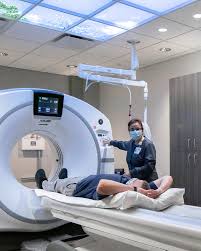
Cancer screening plays a crucial role in early detection and prevention, significantly impacting patient outcomes. This blog explores the various types of cancer screening available, focusing on the benefits, procedures, and advancements. With a particular emphasis on oncological screening in Riyadh(الكشف عن الأورام بالرياض), we aim to provide a comprehensive understanding of different screening methods and their importance.
Understanding Cancer Screening
Cancer screening involves testing for cancer in individuals who do not have symptoms, aiming to detect the disease at an early, more treatable stage. Early detection can lead to better treatment outcomes and higher survival rates. Oncological screening in Riyadh offers various methods tailored to different types of cancers.
Why is Cancer Screening Important?
- Early Detection: Screening can detect cancers before symptoms appear, increasing the chances of successful treatment.
- Reduced Mortality: Early treatment often leads to improved survival rates and can sometimes prevent cancer from developing.
- Improved Quality of Life: Detecting cancer early can help reduce the intensity of treatment needed and preserve quality of life.
Types of Cancer Screening
Various types of cancer screening are designed to detect specific cancers early. Each screening method has its own advantages and is suitable for different types of cancer. Here’s an overview of the most common types:
Breast Cancer Screening
- Mammography: This X-ray examination is the most common method for breast cancer screening. It can detect tumors that are too small to be felt.
- Ultrasound: Often used alongside mammography, ultrasound can help evaluate suspicious areas found in mammograms.
- MRI: Magnetic Resonance Imaging (MRI) is sometimes used for women with a high risk of breast cancer or dense breast tissue.
Cervical Cancer Screening
- Pap Smear: This test involves collecting cells from the cervix to detect abnormalities that could lead to cervical cancer.
- HPV Testing: This test looks for the presence of Human Papillomavirus (HPV), which is linked to cervical cancer.
Colorectal Cancer Screening
- Colonoscopy: A procedure where a flexible tube is used to examine the colon and rectum for polyps or cancer.
- Fecal Occult Blood Test (FOBT): This test detects hidden blood in the stool, which can be a sign of colorectal cancer.
- Flexible Sigmoidoscopy: Similar to colonoscopy but examines only the lower part of the colon.
Prostate Cancer Screening
- Prostate-Specific Antigen (PSA) Test: Measures the level of PSA in the blood, which can be elevated in prostate cancer.
- Digital Rectal Exam (DRE): A physical examination where a doctor feels the prostate through the rectum to detect abnormalities.
Lung Cancer Screening
- Low-Dose CT Scan: This imaging test is recommended for high-risk individuals, such as heavy smokers, to detect lung cancer at an early stage.
Advancements in Cancer Screening
The field of cancer screening is continually evolving with new technologies and methods. Here are some recent advancements:
Genetic Testing
- BRCA Testing: For breast and ovarian cancer, this test looks for genetic mutations that increase cancer risk.
- Multi-Cancer Early Detection Tests: New tests can screen for multiple cancers with a single blood sample.
Liquid Biopsies
- Circulating Tumor DNA (ctDNA): This test analyzes blood samples for fragments of DNA from tumors, offering a less invasive method of detecting cancer.
Artificial Intelligence (AI) in Screening
- AI Algorithms: AI is being integrated into imaging systems to enhance the accuracy of cancer detection and reduce false positives.
Preparing for Cancer Screening
Proper preparation can help ensure that cancer screening is as effective as possible. Here are some tips:
Follow Instructions
- Pre-Screening Guidelines: Adhere to any dietary or medication restrictions provided before the screening test.
- Scheduling: Ensure that you schedule your screening at the recommended intervals based on your risk factors.
Communicate with Healthcare Providers
- Health History: Provide a complete health history and discuss any concerns with your healthcare provider to tailor the screening approach to your needs.
Benefits of Oncological Screening in Riyadh
Oncological screening in Riyadh offers several benefits for residents:
Access to Advanced Technologies
- State-of-the-Art Facilities: Riyadh provides access to modern screening technologies, ensuring high-quality care.
- Specialized Centers: The city has specialized centers for various types of cancer, offering comprehensive screening services.
Personalized Care
- Tailored Screening Programs: Programs are designed based on individual risk factors, ensuring more accurate and effective screening.
- Follow-Up Services: After screening, follow-up services and support are available for further evaluation and treatment if needed.
Conclusion
Cancer screening is a vital component of preventive healthcare, allowing for early detection and intervention. With various types of cancer screening available, including breast, cervical, colorectal, prostate, and lung cancer screenings, individuals can benefit from early detection and improved outcomes. Oncological screening in Riyadh provides access to advanced technologies and personalized care, making it an essential part of the city’s healthcare landscape.
By understanding the different types of screening and the advancements in the field, individuals can make informed decisions about their health and take proactive steps towards cancer prevention. Regular screening, combined with a healthy lifestyle, plays a crucial role in maintaining overall health and well-being. for more info and cost الكشف عن الأورام بالرياض